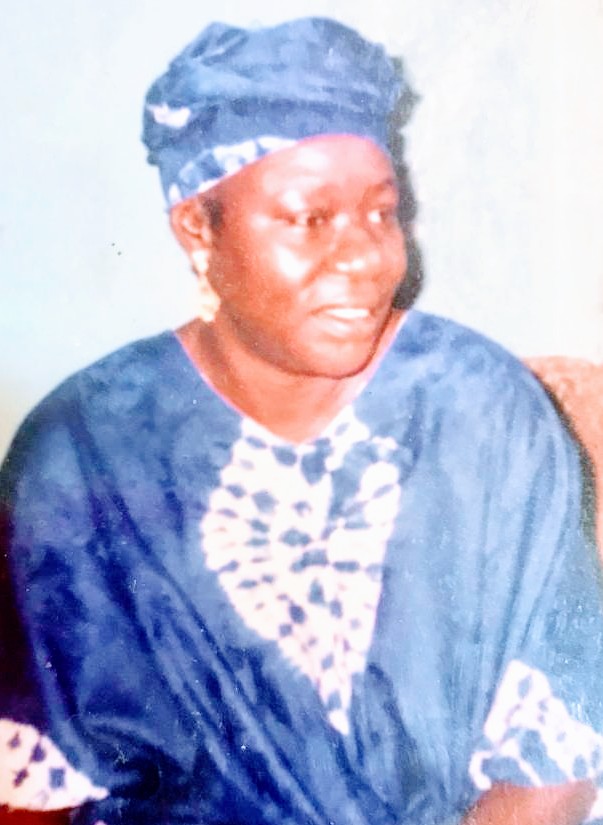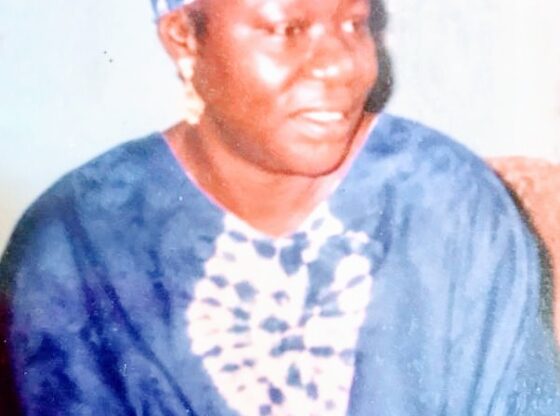It was twenty-two years ago this March that a once respected and popular secondary school educator suddenly passed away in Freetown to the shock of her many relatives, former colleagues, students, and friends.
Raila Rahman was the Principal of Kankaylay Islamic Secondary School in Freetown. Before gaining her top position there, she had worked as a teacher and acting Vice-Principal at the Annie Walsh Memorial School also in Freetown. But it was her deep sense of compassion and humanity toward others that still linger in the minds of many about her.
Just two days before her sudden death, Mrs. Raila Rahman, sounding cheerful, had spoken by phone to some relatives and some of her female colleagues and students congratulating them on International Women’s Day on March 8, 1999. The 48-year-old Principal had plans to engage in women and girls’ programs in the country on her retirement. But death would deny her the opportunity.
Relatives and friends still remember with deep sadness her shocking death. Her two nieces who were abroad when she passed away, still could not muster the courage to watch a video of her funeral. Both Kiptiatu Iscandari and Haja Ebi Sankoh, in California, fear watching the video may retrigger the pains they suffered when she passed away.

Mrs. Rahman was the matriarch of her family, a well-known family that included her father, Alderman Abdul Fatta Rahman, who broke barriers to become the first Muslim to be elected Mayor of the City of Freetown. She and her nieces were contemporaries due to the close age gap between them. Their mother was an elder sister of Mrs. Rahman. The mother was by far older than their aunt.
Growing up, Iscandari and Sankoh, and their brother, her nephew, Alhaji Wahab, developed a close bond with their aunt. She was more of an elder sister and intimate friend than an aunt to them. They used to confide in her more than they did in their parents. She was the one they would discuss personal and intimate matters with. All three of them are now working as senior personnel in the health care sector in the United States.
All three remember an aunt who cared for them as well as for others in the wider household. They recall her imbuing in them the culture of studiousness. They also attribute their academic success as well as other accomplishments to the educational foundation she led them through. It was a trait her son, Abdul Fatta Rahman in Freetown echoes as well. Fatta Rahman describes his late mother as a disciplined, selfless, and kindhearted woman.
Haja Ebi Sankoh recalls Mrs. Rahman taking them to the city library and registering them. She also ensured that they attend frequently. “She instilled in us the habit of reading consistently,” she remembers. Sankoh says her aunt was always supportive of the family in every respect.
Kiptiatu Iscandari agrees. She says that their aunt was special. Iscandari says Mrs. Rahman was a mentor who meant so much to them, adding that she was inspiring as well. “Sisi Raila always took the lead in all of our affairs. She cared for everyone including our children the way a mother would care for her children. She was exceptional.” Iscandari says it was hard for them to believe she had died.
Since her childhood, Raila Rahman developed the habit of reading and getting others to do the same. She would read everything, and anything, written in English, from poetry to space exploration ventures. One of her best moments as a child was when her dad would come home from work with newspapers or when newspapers were being delivered to their home in the morning.
Standing at five foot ten, and always wearing a serious look, Raila Rahman’s disposition personified diligence, a no-nonsense, and upright woman. Her persona, plus her uncompromising dedication to learning led her to appear intimidating to some young men around who would only imagine at most. To some, she was thought of as Miss. Hard-to-get. Navy Officer Lieutenant Younusa Rahman was one man who was not so intimidated. The two got married later.
Rtd. Lt. Younusa Rahman is a veteran of the RSLAF, the Republic of Sierra Leone Armed Forces, Naval Wing. He says that his late former wife was one of the best women ever in his life. He relishes that they both shared the same last name, Rahman, even before they got married. He nicknamed her, R-Square, as a result. Unfortunately, they were separated before she died.
Rtd. Lt. Rahman says his former wife contributed greatly to shaping his life for the better. He describes her as a very nice woman who was generous, patient, and ambitious. “The lessons I learned from her diligence, her perseverance, and her patience couldn’t be timelier for me as an active military officer then.” Rtd. Lt. Rahman says he and their two children, Khadijah Kabba now in the United States and Abdul Fatta Rahman in Sierra Leone constantly talk about her.
At the Annie Walsh Memorial School where she spent close to two decades of her professional career, the former teacher of English Language and Literature did more than teaching. She also was concerned about the well-being of her students. Fatta Rahman remembers how his mother once circumvented a general school rule for residential staffers at the school quarters to accommodate and help needy students. The rule was that only staffers and their children are permitted to reside in the quarters. Mrs. Rahman, however, had three other students, two of whom were from other regions of the country, to stay with her. She supported them fully. Fatta Rahman says his mother would go the extra length to make others, particularly students, feel comfortable and fulfilled.

A former student of Mrs. Rahman at the AWMS, Khadi Mattia agrees. “Mrs. Rahman was very dedicated, very interested in making sure young women like us were molded into becoming productive and worthy citizens of society,” Mattia says she was privileged to be taught and nurtured by the late teacher who she also describes as brilliant, amazing, and magnanimous.
Mattia recalls the challenges she encountered coming from the provinces to attend the elite girls’ high school. Only a handful of students from outside of the capital Freetown were lucky to be admitted to the school. She says Mrs. Rahman helped made her transition and schooling at the AWMS easier and comfortable.
According to Mattia Mrs. Rahman would utilize her off-work time to give extra help to students who needed extra help, adding that “she would determine the potentials of students and help them build on them. I will forever be grateful for her presence in my life,” she gratifies. Khadi Mattia is a registered nurse in California where she now resides.
A former colleague at the Annie Walsh Memorial School who knew and who for much longer was closer to the late teacher, Richmond Garrick says that she exhibited an extraordinary passion for the teaching profession, and for the English Language and Literature subjects she was teaching. Professor. Dr. Garrick says that all those who were around her were touched by that passion. “Mrs. Rahman was the consummate professional when it comes to the English Language and Literature. She was detail-oriented, prudent, and soundly analytical.” Professor Garrick says his late former colleague had always maintained a professional and courteous approach toward other staffers and students.
Dr. Richmond Garrick now lectures at Rutgers University in New Jersey. He says Mrs. Rahman would counsel, rather than impose punishment on students who were found wanting. Another former colleague at the Annie Walsh Memorial School, Bernice Johnson concurs, saying, “when it comes to students, Mrs. Raila Rahman would admonish rather than scold them to draw their attention.” Her approach was unlike what was the norm then in most schools in Sierra Leone.
Dr. Johnson and Mrs. Rahman were also close friends. Dr. Johnson describes Mrs. Rahman as near-complete perfect. She says her former colleague and friend was disciplined, patient, upright, and ambitious, adding that she was a keen listener who would also not hesitate to say things the way she saw them. “She would say what she believed was right.”
Dr. Bernice Johnson praises the late woman for organizing after-school programs devoted to helping students succeed, free of cost. “The wellbeing of students was her utmost concern,” she remembers.
Dr. Johnson says their relationship went beyond being colleagues, and friends. “We were sisters born of different mothers. I wish she were still alive.” Dr. Johnson says students of Mrs. Rahman used to adore her because of her show of patience, sense of discipline, and kindheartedness.
On March 10, 2021, Khadijah Kabbah did a Facebook remembrance posting of her late mother. One of the commenters, newscaster of the Sierra Leone Broadcasting Corporation, Haja Kadie Johnson, refers to the late woman as a close friend. She writes, “I could remember those days when we used to be together, chat deeply and try to be happy…”
The former Principal was an embodiment of love, according to her daughter, Khadijah Kabba. She remembers a mother who she says was full of love and had always tried to remain happy. “That who she was,” she recalls, adding, “she demonstrated love for everyone she met.” She says her mother loved babies too, and that she would ask mothers to bring in their babies so she would babysit and nurse them when the mothers were busy.”
Impressed by her mother’s care for the children of others, Khadijah Kabba had longed for the days she too would have babies and her mother taking charge. Unfortunately, her mother died before she did. “I had looked forward to it. Sadly, my mother died before I had my children.” That her mother died before she had her children made her death more painful for her, she says in a voice choked with emotion.
It was not all-work and no-play for the late woman. Aside from her reading hubby Mrs. Rahman was also fond of music. She would listen to music while performing other chores at home. Love songs by Jamaican music legend, Sonia Spence, who incidentally was herself a teacher, were her favorites. Kabba remembers Jet Plane, and No Charge, among her mother’s favorites. And she loved to dance as well, Fatta Rahman recalls. He remembers how, as a little boy, his mother would play music and invite him to dance with her.
Speaking with a smile, and in a low voice as if to indicate how much he used to cherish it all, Fatta Rahman says his mother loved to wear sweet perfumes as well even when she was home alone. “She loved to smell sweet all the time,” he says with a smile. He also describes her as a good cook. “We all loved it whenever she cooked. She was the best cook I have ever known.”
Nephew Alhaji Wahab says her aunt was an accomplished woman in many respects but that she was also a humbled individual notwithstanding her many achievements. Wahab says she was also the central point of the family. “She would take the lead on everything, making sure everyone was fine and that things were up to standard around us,” he adds.
Mrs. Raila Rahman was herself an alumna of the Annie Walsh Memorial School, attending there from junior to senior levels before proceeding to Fourah Bay College University of Sierra Leone where she pursued a degree in Literature and Education. After graduation, she returned to her alma mater to teach English Language and Literature.
She rose in ranks during her long tenure at the Annie Walsh Memorial School, getting up to the position of acting Vice-Principal. A former Principal of the school, Madam Gracie Williams once described Mrs. Rahman as one of the best gifts that the school had been blessed with. Sources say the two were very closed. Principal Williams used to confide in her on matters relating to school development.
One of the oldest schools in Africa, the prestigious all-girls Christian secondary school was founded in 1849. It was named after a young English girl whose dream was to become a missionary in African but who, unfortunately, died at an early age. The school remains a pride of girls’ secondary education in West Africa. For Mrs. Rahman, attending the school, and then serving there as a teacher was a dream come true.
Mrs. Raila Rahman was appointed Principal of Kankalay Islamic Secondary School, a new but promising, co-edA school, in 1992. She served diligently until her death in March 1999.
At a low-key remembrance prayer ceremony held in her honor at the family house at Fourah Bay in Freetown, Chief Imam of Jamiul Atiq Mosque, Alhaji Hassani Karim says her death was a big loss to the many she crossed paths with during her lifetime. Imam Karim describes her as a good woman who inspired and helped elevate the lives of people across all walks of life.
Prayer coordinator and a cousin to the late woman, Alhaji Sheriff Rahman, says the occasion brought back sad memories of a woman who was charming, caring, and a pride of the community. Alhaji Rahman quotes a verse of the Holy Quran to console all those who still grieve her death, noting that it is all part of God’s Plans. He urges all to always keep her in their prayers. Alhaji Rahman and his late cousin were also closed.


